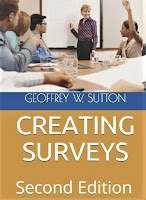Scale overview
The Rosenberg Self-Esteem Scale RSES is
a 10-item measure of general self-esteem. It is widely used in research and
clinical practice.
Author(s)
Morris Rosenberg
Items =
10
Response
Type
Participants
respond using a 4-point Likert type scale ranging from strongly agree,
agree, disagree, to strongly disagree.
Subscales:
None.
Items
provided by Fetzer Institute online
Instructions
Below is a list of statements dealing with your general feelings about
yourself. Please
indicate how strongly you agree or disagree with each statement.
1. On the whole, I am satisfied with myself.
2. At times I think I am no good at all.
3. I feel that I have a number of good qualities.
4. I am able to do things as well as most other people.
5. I feel I do not have much to be proud of.
6. I certainly feel useless at times.
7. I feel that I'm a person of worth, at least on an equal plane with
others.
8. I wish I could have more respect for myself.
9. All in all, I am inclined to feel that I am a failure.
10. I take a positive attitude toward myself.
Scoring:
Items 2, 5, 6, 8, 9 are reverse scored. Give “Strongly Disagree” 1
point, “Disagree” 2 points,
“Agree” 3 points, and “Strongly Agree” 4 points. Sum scores for all ten
items. Keep scores
on a continuous scale. Higher scores indicate higher self-esteem.
Reliability
The scale
has performed well in numerous previous studies.
“RSES has
test-retest correlations ranging from .82 to .88. Cronbach’s alpha from various
samples has a range of .77 to .88. There is a unidimensional and two-factor
structure to the scale (University of Maryland, 2019). Cronbach’s Alpha gives
us an indication of internal consistency (Tavakol & Dennick, 2011).
Generally, a number greater than .70 is acceptable (UCLA, n.d.).” (Information
from Miller, K., 2020)
Validity
The scale
is widely used in published research. See recent articles for actual data.
Availability
The items
above were obtained from the Fetzer Institute’s website.
Permissions
-- if identified
None
identified by the Fetzer Institute in the pdf.
Rosenberg,
Morris. 1965. Society and the Adolescent Self-Image. Princeton, New
Jersey: Princeton University Press.
Creating Surveys on AMAZON or GOOGLE Worldwide
Applied
Statistics Concepts for Counselors on AMAZON or GOOGLE
Resource Links: A – Z Test Index
Checkout My Website www.suttong.com
See my Books
FOLLOW me on
FACEBOOK Geoff
W. Sutton
TWITTER @Geoff.W.Sutton
PINTEREST www.pinterest.com/GeoffWSutton
Read published articles:
Academia Geoff
W Sutton
ResearchGate Geoffrey W Sutton



Comments
Post a Comment